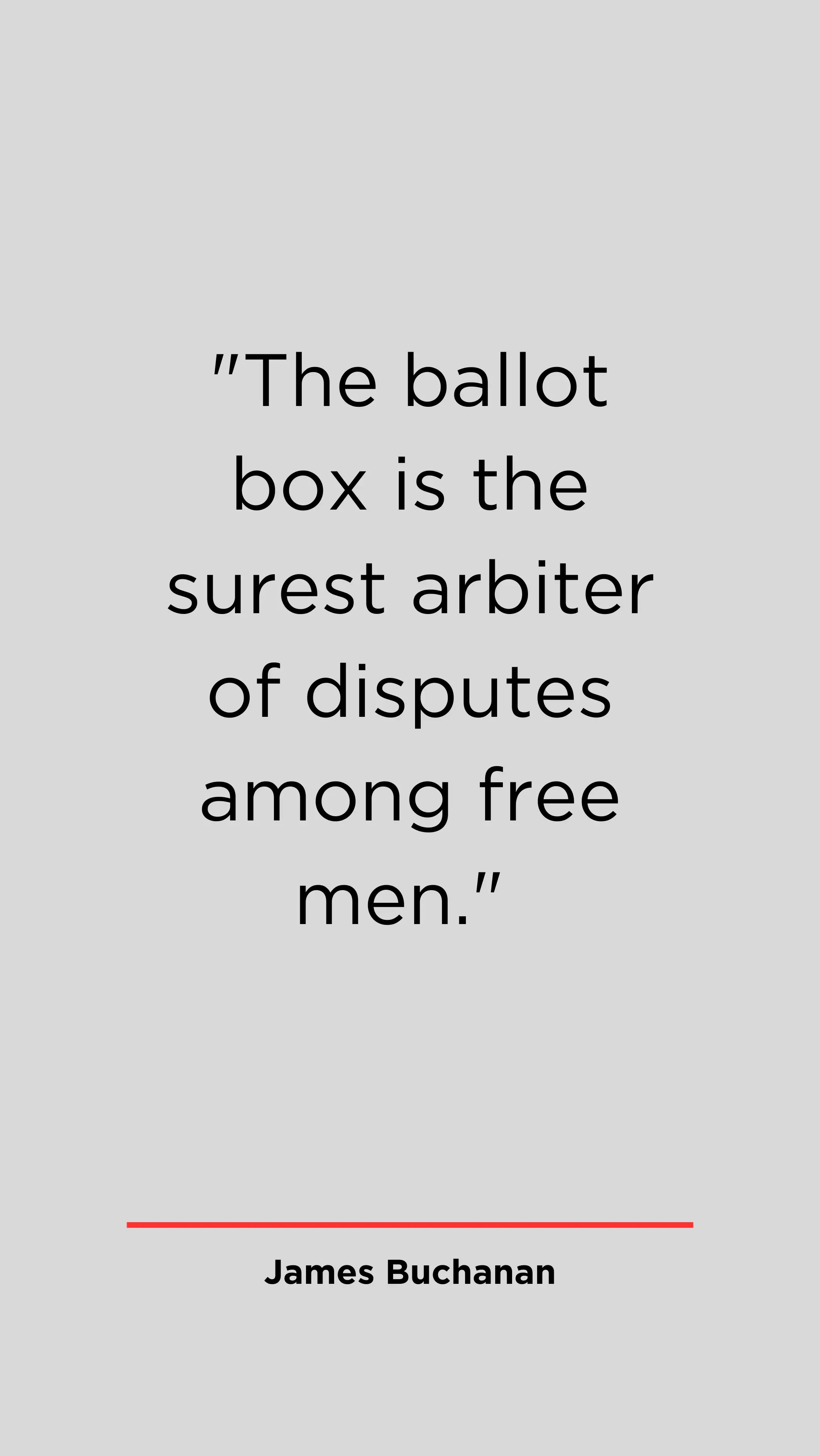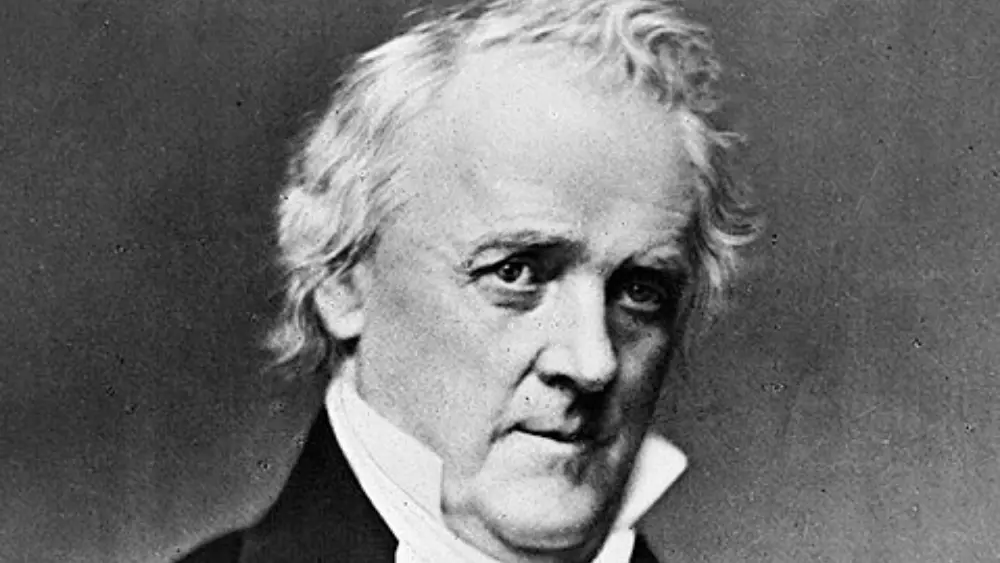James Buchanan, the 15th President of the United States, is remembered for his unruly presidency and his handling of the nation’s deepening divisions on the issue of slavery. Born on April 23, 1791, in Cove Gap, Pennsylvania, Buchanan’s political career was marked by his extensive experience in public service before assuming the highest office in the land.
Early Life and Political Career
Born in a small town in central Pennsylvania in 1791, James Buchanan’s early life was shaped by his humble beginnings and his strong educational foundation. After completing his studies at Dickinson College and eventually earning a law degree, Buchanan embarked on a fruitful career in law and public service, showcasing his aptitude for governance and legal expertise. His early experiences in the Pennsylvania State Legislature paved the way for a successful political career that would eventually lead him to serve as a prominent figure in the United States government.
James Buchanan’s political career was marked by his extensive service in various government roles, culminating in his election as the 15th President of the United States in 1856. His early political endeavors in the Pennsylvania State Legislature and the U.S. House of Representatives laid the groundwork for his later achievements, demonstrating his dedication to public service and his deep understanding of the complexities of governance. Buchanan’s ascent to the presidency highlighted his political acumen and ability to navigate intricate political landscapes, although his presidency would ultimately be overshadowed by the growing tensions leading to the Civil War. Despite the challenges he faced during his presidency, Buchanan’s earlier political career remains a testament to his commitment to public service and his enduring impact on American politics.
James Buchanan: Diplomatic Service and Political Achievements
James Buchanan’s illustrious career in diplomatic service showcased his remarkable expertise in international relations and diplomacy. His tenure as the Minister to Russia and the United Kingdom underscored his ability to navigate complex geopolitical landscapes and foster amicable relations between the United States and foreign powers. His diplomatic efforts contributed significantly to the strengthening of bilateral ties and the promotion of American interests on the global stage, solidifying his reputation as a skilled diplomat and an invaluable asset to the nation’s foreign policy endeavors.
In addition to his diplomatic service, James Buchanan’s political achievements, notably his role as the Secretary of State under President Polk, reflected his profound commitment to advancing the nation’s interests through effective governance. During his tenure as the Secretary of State, he made significant accomplishments, including the negotiation of the Oregon Treaty and the establishment of the Department of the Interior. Buchanan’s political acumen and dedication to public service were instrumental in shaping key policies and initiatives that had a lasting impact on the nation, cementing his legacy as a statesman of exceptional caliber.
Presidential Election and Domestic Challenges
During Buchanan’s presidency, the intensifying debate over the expansion of slavery into new territories confronted an unruly political climate. His election took place against the backdrop of the impending storm of the Civil War, with his administration inheriting the divisive aftermath of the Kansas-Nebraska Act. Buchanan’s attempts to navigate the contentious issue of slavery and appease both pro-slavery and anti-slavery factions proved to be a daunting challenge, ultimately contributing to the deepening divisions within the country.
The emergence of the secessionist movement and the eventual dissolution of the Union further exacerbated the domestic challenges that defined Buchanan’s presidency. The growing divide between the North and the South, coupled with the failure to find a viable resolution to the issue of slavery, led to a fractured nation on the brink of a devastating civil conflict. Despite his efforts to preserve the Union, the inability to effectively address the pressing domestic crises marred Buchanan’s presidency, leaving a complex legacy that reflected the challenges of maintaining national unity in the face of deeply entrenched ideological differences.
James Buchanan: Sectional Divisions and the Slavery Debate
The intensifying rift between the Northern and Southern states overshadowed James Buchanan’s presidency, exacerbated by the contentious and deeply entrenched debate over the institution of slavery. The intensifying rift between the Northern and Southern states overshadowed James Buchanan’s presidency, exacerbated by the contentious and deeply entrenched debate over the institution of slavery. Despite his efforts to maintain a delicate balance and preserve the Union, Buchanan’s presidency was unable to effectively quell the growing tensions, highlighting the formidable challenges posed by the deeply rooted ideological differences between the North and the South.
The fervent slavery debate during Buchanan’s presidency underscored the profound ideological and moral differences that permeated American society. With the emergence of abolitionist movements in the North and staunch pro-slavery sentiments in the South, the nation found itself increasingly divided along geographic and ideological lines. Buchanan’s inability to provide a viable resolution to the slavery issue and his failure to prevent the secession of Southern states ultimately served as a stark reminder of the fragility of national unity in the face of deeply entrenched beliefs and interests.
Dred Scott Decision and Kansas-Nebraska Act
James Buchanan’s endorsement of the contentious Dred Scott decision in 1857 added fuel to the already blazing fire of sectional tensions. His support of the Supreme Court’s ruling, which declared that African Americans were not entitled to citizenship and that Congress could not prohibit slavery in the territories, drew widespread criticism from anti-slavery advocates, intensifying the conflict over the expansion of slavery. Buchanan’s stance on the Dred Scott case deepened the divide between the North and the South, significantly eroding any hope of finding common ground on the contentious issue of slavery.
Furthermore, Buchanan’s approach to the Kansas-Nebraska Act of 1854, which allowed the residents of these territories to decide on the issue of slavery through popular sovereignty, further contributed to the growing animosity between pro-slavery and anti-slavery forces. The repeal of the Missouri Compromise of 1820 by the Act, which had prohibited slavery in certain territories, met with vehement opposition in the North, leading to violent clashes in Kansas and highlighting the stark divisions within the country. Buchanan’s handling of the Kansas-Nebraska Act exacerbated the already contentious debate over slavery, ultimately setting the stage for heightened hostilities and the eventual eruption of the Civil War.
James Buchanan: Failed Attempts at Reconciliation
Throughout James Buchanan’s administration, he persistently attempted to reconcile the escalating tensions between the North and the South, yet his efforts at fostering compromise and unity were largely ineffective. His advocacy for the Crittenden Compromise, a last-ditch effort to preserve the Union by extending the Missouri Compromise line to the Pacific, failed to garner sufficient support, reflecting the deeply entrenched ideological differences that had polarized the nation. Despite his earnest endeavors to promote conciliation, Buchanan’s inability to secure a viable resolution underscored the formidable obstacles inherent in mitigating the deep-seated animosity and ideological divisions that ultimately led to the Civil War.
In addition to his advocacy for the Crittenden Compromise, Buchanan’s utilization of diplomatic channels to address the nation’s turmoil also fell short of achieving lasting reconciliation. His diplomatic missions and negotiations aimed at preserving the Union and quelling the secessionist movement were met with limited success, further highlighting the complexity of the political landscape and the intractable nature of the disputes. Despite his best intentions, Buchanan’s failed attempts at reconciliation serve as a poignant reminder of the immense challenges inherent in navigating a deeply divided nation on the brink of a devastating and protracted conflict.
Legacy and Historical Interpretations
Some historians view James Buchanan’s presidency as marred by critical missteps, pointing to his failure to effectively address the escalating tensions over slavery and his inability to prevent the secession of Southern states as indicative of his shortcomings as a leader. They argue that his support for divisive measures such as the Dred Scott decision and the Kansas-Nebraska Act exacerbated the already volatile situation, ultimately contributing to the eruption of the Civil War. However, others emphasize the challenging circumstances Buchanan faced during his presidency, highlighting the deeply entrenched divisions within the nation that made effective resolution difficult. They argue that Buchanan’s attempts at reconciliation, though ultimately unsuccessful, were reflective of his commitment to preserving the Union and his sincere efforts to navigate the complex political climate of the time.
As a complex figure in American history, James Buchanan’s legacy serves as a cautionary tale of the perils of indecision and the challenges inherent in leading a deeply fractured nation. His presidency serves as a reminder of the profound impact of leadership on the course of history, prompting ongoing discussions about the role of political leaders in times of crisis and the imperative of fostering unity in the face of deep-seated ideological divisions. Despite the differing interpretations of his presidency, James Buchanan’s historical legacy underscores the enduring importance of effective governance and the need for decisive leadership in times of national turmoil.
Critiques and Historical Assessments
James Buchanan’s presidency has been the subject of significant critique, with many historians highlighting his perceived failures in addressing the escalating tensions over slavery that ultimately led to the Civil War. Critics often point to his controversial stance on the Dred Scott decision and the Kansas-Nebraska Act, which exacerbated the deepening divide between the North and the South. Additionally, his inability to prevent the secession of Southern states and his perceived lack of effective leadership in a time of crisis have drawn considerable scrutiny. Some scholars argue that Buchanan’s presidency demonstrated a lack of decisive action and effective strategies for national reconciliation, thereby underscoring the challenges of governing a deeply divided nation on the brink of a catastrophic conflict.
Despite the criticisms, some historical assessments offer a more nuanced perspective, recognizing the complex political landscape that Buchanan navigated during his presidency. These assessments often acknowledge the significant challenges and constraints he faced in attempting to maintain national unity in the face of mounting tensions. Some historians highlight the formidable obstacles inherent in addressing the deeply entrenched divisions within the country, emphasizing the limitations of political leadership in a period of profound societal and ideological discord. Such assessments prompt a deeper exploration of the intricate dynamics that shaped Buchanan’s presidency, encouraging a more comprehensive understanding of the complexities that influenced the trajectory of the United States during this pivotal era.

James Buchanan: Impact on the American Civil War
James Buchanan’s presidency, particularly his handling of the escalating tensions over slavery and the secessionist movement, has had a lasting impact on the trajectory of the American Civil War. His perceived inaction and inability to prevent the secession of Southern states, coupled with his controversial support for divisive policies, have led many historians to scrutinize his role in the events that ultimately culminated in the devastating conflict. Buchanan’s presidency serves as a poignant reminder of the significant challenges of leadership during a time of profound societal and political upheaval, highlighting the pivotal role of effective governance in preserving national unity and averting the outbreak of war.
Furthermore, the debates surrounding Buchanan’s legacy underscore the broader implications of his presidency on the nation’s history. His actions and decisions, or lack thereof, continue to spark discussions about the complexities of American politics and the enduring legacy of the Civil War. By examining Buchanan’s presidency within the context of the divisive forces that shaped the 19th-century American landscape, scholars and historians gain valuable insights into the intricacies of leadership and the profound impact of political decisions on the course of history.











